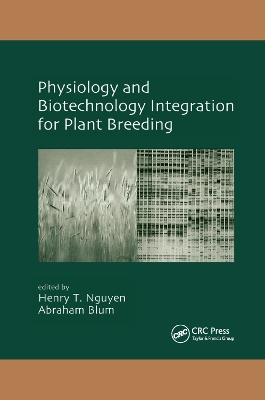Books in Soils, Plants, and the Environment
1 total work
Physiology and Biotechnology Integration for Plant Breeding
Global demand for wheat, rice, corn, and other essential grains is expected to steadily rise over the next twenty years. Meeting this demand by increasing production through increased land use is not very likely; and while better crop management may make a marginal difference, most agriculture experts agree that this anticipated deficit must be made up through increased crop yields.
The first resource of its kind, Physiology and Biotechnology Integration for Plant Breeding assembles current research in crop plant physiology, plant biotechnology, and plant breeding that is aimed toward improving crop plants genetically while supporting a productive agriculture ecosystem. Highly comprehensive, this reference provides access to the most innovative perspectives in crop physiology – with a special emphasis on molecular approaches – aimed at the formulation of those crop cultivars that offer the greatest potential to increase crop yields in stress environments.
Surveys the current state of the field, as well as modern options and avenues for plant breeders and biotechnologists interested in augmenting crop yield and stability
With the contributions of plant scientists from all corners of the globe who are actively involved in meeting this important challenge, Physiology and Biotechnology Integration for Plant Breeding provides readers with the background information needed to understand this cutting-edge work, as well as detailed information on present and potential applications. While the first half of the book establishes and fully explains the link between crop physiology and molecular biology, the second part explores the application of biotechnology in the effective delivery of the high yield and environmentally stable crop plants needed to avert the very real possibility of worldwide hunger.
